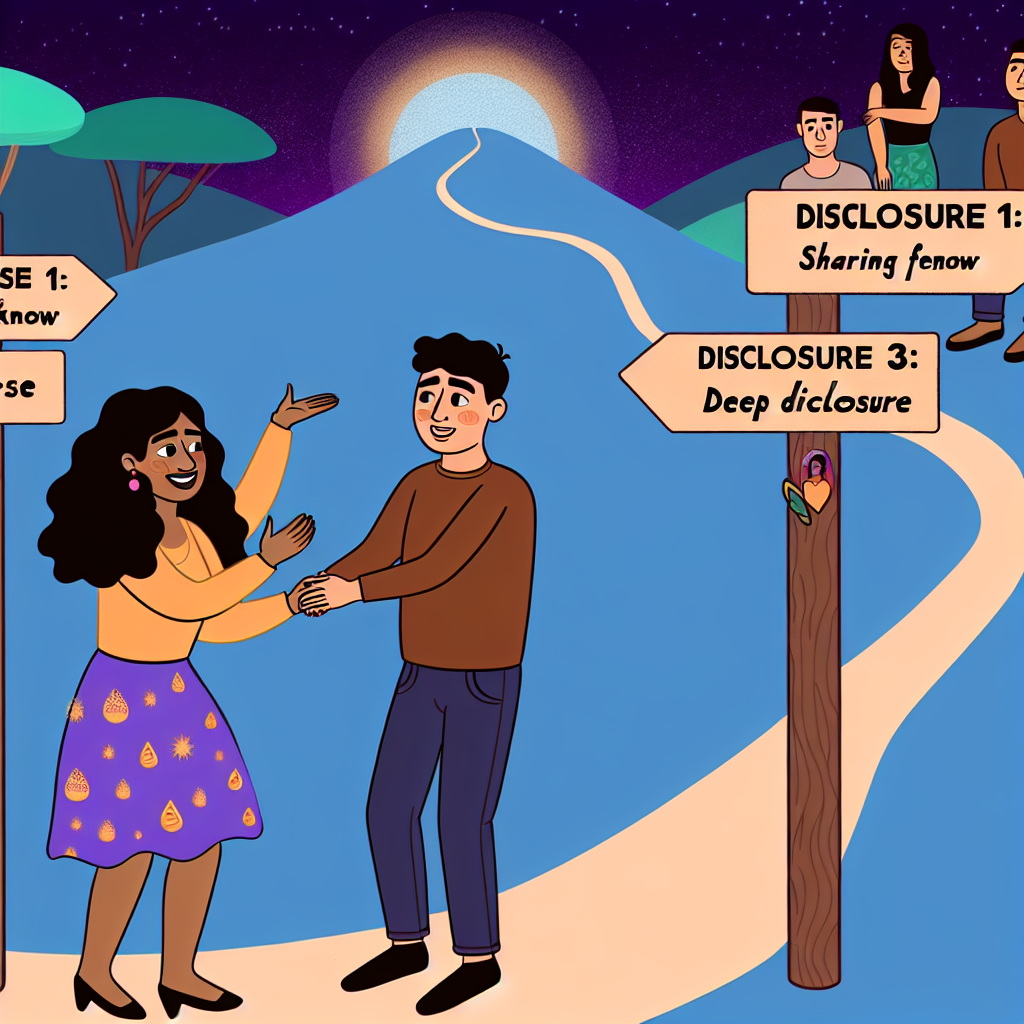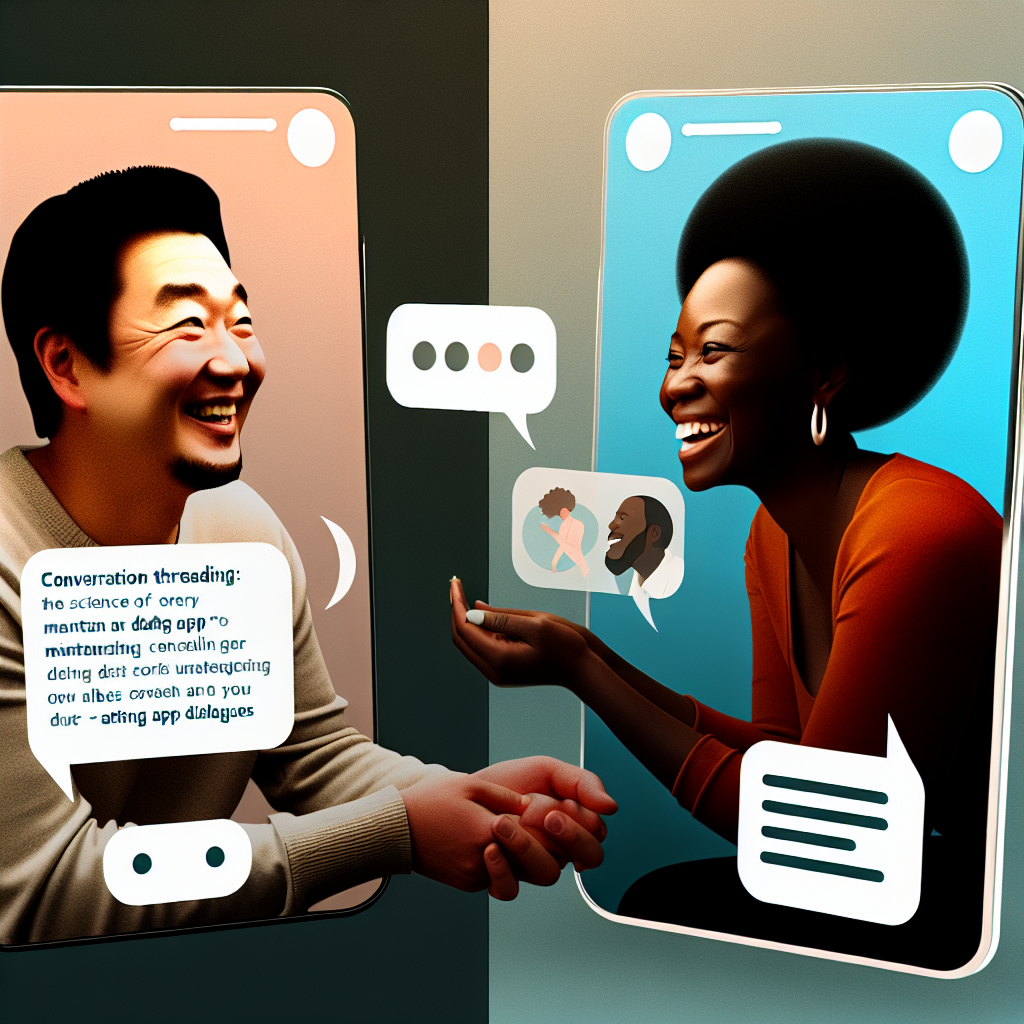# Dating Disclosure Frameworks: What to Share When in Relationship Development
Dating Disclosure Frameworks: What to Share When in Relationship Development
Modern dating can be thrilling, hopeful, and at times, intensely complicated. One of the most nuanced aspects of developing a new relationship is determining what personal information to disclose, when to share it, and how much to reveal. From sharing your relationship goals and financial health to discussing past traumas or medical conditions, navigating the layers of personal disclosure has become a cornerstone of healthy relationship development. But how can daters from age 18 to their 80s know what’s appropriate to reveal—and when?
The answer is often found in a balance between honesty, emotional intelligence, and timing. Enter the concept of “Dating Disclosure Frameworks“—an intentional method of guiding singles through the process of opening up to a romantic partner while still maintaining appropriate boundaries and protecting personal vulnerabilities during the early stages of connection.
Why Sharing the Right Things at the Right Time Matters
A growing body of psychological and relationship research supports the idea that intentional self-disclosure leads to greater relationship satisfaction, improved emotional intimacy, and stronger long-term bonds.
According to the Social Penetration Theory developed by psychologists Irwin Altman and Dalmas Taylor, romantic relationships develop through gradual layers of self-disclosure—from superficial facts (“I love Thai food”) to deeper emotional revelations (“I struggle with anxiety in large groups”).
The study “Self-disclosure and relationship development: pattern, functions, and future direction” published in the *Journal of Social and Personal Relationships* (Derlega et al., 2014), highlights that timing and context are critical in relationship disclosure. Individuals who disclose relevant information at appropriate times tend to foster emotionally stable, long-lasting partnerships compared to those who overshare early or delay important truths.
Health & Wellness: When to Share Personal Medical Details
In terms of health transparency, a 2022 publication by the American Psychological Association found that couples who disclosed chronic health conditions or sexually transmitted infections (STIs) early in the relationship reported higher levels of mutual trust and empathy—critical components for sustainable romantic partnerships.
Such disclosures, when handled with care and mutual respect, help build psychological safety and show emotional maturity. While early disclosure can be difficult, waiting too long may feel like betrayal if the relationship becomes serious.
Financial Truths: Discussing Money Without Killing the Mood
Finances are often a taboo topic, but hiding spending habits or significant debt can sabotage even the most promising relationship. A study from the *Journal of Marriage and Family* underscores that financial disclosure—like credit scores, saving tendencies, or student loan debt—should happen within the first three to five serious dates, especially when both partners are exploring long-term compatibility.
Open conversations about money may feel uncomfortable, but they can prevent resentment, misalignment, and unexpected conflict down the road.
Dating at Any Age: How Disclosure Patterns Shift Over Time
Disclosure norms shift over a lifetime. A 2021 study in *Gerontology & Relationship Science* revealed that older adults dating after divorce or the loss of a spouse often carry heightened anxiety around sharing personal health or emotional history.
However, those who adopted structured disclosure frameworks—such as revealing sensitive details only after certain milestones—reported lower anxiety and higher confidence. These frameworks helped protect vulnerability while still encouraging authentic communication.
Mutual Vulnerability: The Power of Consent and Emotional Pacing
Disclosure should never feel one-sided or forced. Experts from the Gottman Institute suggest using a strategy called “emotional pacing,” where partners gradually open up in rhythm with each other’s comfort and reciprocity levels.
One common trap to avoid is the “oversharing loop,” where someone discloses too many intimate details too early, often hoping to accelerate emotional bonding. Instead, focus on creating space for mutual discovery.
Start with light self-insights and simple truths. Deepen emotional conversations as trust increases—ideally between the third and sixth date, depending on the nature of the relationship and the pace of connection.
Conclusion: Turning Truth into Trust
Navigating what, when, and how to disclose personal information while dating doesn’t have to feel overwhelming. By following research-based dating disclosure frameworks, singles from all walks of life can build stronger, more authentic connections.
Honesty, communication pacing, and emotional safety are essential for meaningful relationship development. When shared thoughtfully, your truth can serve as an invitation to intimacy rather than a barrier to connection.
Concise Summary:
Modern dating requires navigating the nuances of personal disclosure – what, when, and how much to share with a new partner. Research-backed “dating disclosure frameworks” can guide singles through this process, leading to stronger emotional connections, accelerated intimacy, and healthier relationship outcomes. Key factors include timing, consent, emotional pacing, and transparency around health, finances, and life experiences.
References:
[1] Altman, I., & Taylor, D. A. (1973). Social Penetration: The Development of Interpersonal Relationships. Holt, Rinehart & Winston.
[2] Derlega, V. J., Winstead, B. A., & Greene, K. (2014). Self-disclosure and relationship development: pattern, functions, and future direction. *Journal of Social and Personal Relationships*.
[3] American Psychological Association. (2022). Health disclosure patterns in romantic relationships.
[4] Journal of Marriage and Family. (2020). When and how to talk about money with romantic partners.
[5] Gottman Institute. (2023). Emotional pacing and vulnerability in dating.
[6] Gerontology & Relationship Science. (2021). Dating and self-disclosure in later life.

Dominic E. is a passionate filmmaker navigating the exciting intersection of art and science. By day, he delves into the complexities of the human body as a full-time medical writer, meticulously translating intricate medical concepts into accessible and engaging narratives. By night, he explores the boundless realm of cinematic storytelling, crafting narratives that evoke emotion and challenge perspectives. Film Student and Full-time Medical Writer for ContentVendor.com




